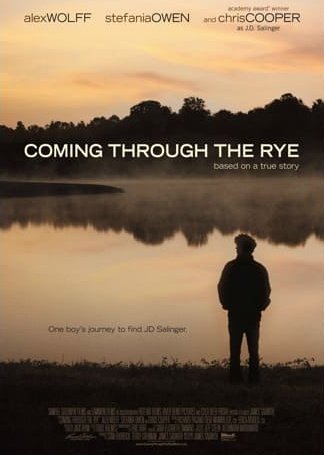If you're interested in the world of movie finance, there are a few key concepts you should understand. From creating a budget to identifying revenue streams and film investors, our guide will provide an overview of the basics of film financing. Film finance also involves raising capital, securing loans and, if necessary, attracting investors who are willing to provide financial resources to support the production of a film. The success of a movie often depends on the quality of its financing, as well as the management of its financial resources. The movie industry is a capital-intensive business, and it requires significant financial resources to produce a high-quality film that will attract audiences and generate revenue. Whether you are a filmmaker or film investor, understanding these concepts can help you navigate the insular world of movie finance.
Movie finance has become increasingly complex over the years due to the emergence of new financing models and technologies. In the past, movie financing was typically provided by studios or wealthy individuals. However, the rise of crowdfunding and digital platforms has opened up new opportunities for independent filmmakers to secure funding. Despite the challenges, movie finance remains an essential part of the film industry. It plays a crucial role in determining the types of movies that get made, as well as their quality and success. Understanding the intricacies of movie finance can help filmmakers and investors make better decisions and improve their chances of success in the industry.
The Movie Financing Process
The process of financing a movie can be broken down into three main stages: pre-production, production, and post-production. Each stage requires different types of financing and involves different risks and rewards for investors.
- Pre-Production Financing - During the pre-production stage, the filmmakers develop/purchase the script, cast actors, scout locations, and plan the logistics of the shoot. This stage typically requires the least amount of financing compared to other stages, but it is still important to secure enough funding to cover initial expenses. Pre-production financing can come from a variety of sources, including private investors, crowdfunding, grants and loans. It is important for filmmakers to have a solid business plan and budget in place to attract potential investors and secure financing.
- Production Financing - The production stage is when the actual filming takes place. This is typically the most expensive stage of the movie financing process, as it involves paying for equipment, crew, actors and other expenses related to the shoot. Production financing can come from a variety of sources, including studios, grants, independent investors, pre-sales agreements and tax incentives. Major studios often provide the bulk of production financing for big-budget films, while independent investors may provide financing for smaller budget films.
- Post-Production Financing - The post-production stage involves editing, sound design, visual effects, and other tasks necessary to complete the final cut of the film. This stage can also be expensive, but it typically requires less financing compared to the production stage. Post-production financing can come from a variety of sources, including private investors, crowdfunding, gap financing and loans. It is important for filmmakers to have a solid marketing plan in place to attract potential investors and secure financing for post-production.
Top of Movie Finance 101
Understanding Film Budgets
A film budget is a detailed breakdown of all the costs associated with making a movie. This includes everything from pre-production expenses like script development and casting, to production costs like equipment rental and location fees, to post-production expenses like editing and sound design. Understanding your budget is crucial to the success of your film, as it will help you determine how much money you need to raise from investors and how much revenue you need to generate to break even or turn a profit. See our Sample Film Budget Template for more details on what goes into a budget, how it differs from a Budget Top Sheet and our top tips around managing a movie budget.
Finding Investors for Your Film
Finding investors for your film can be daunting to many filmmakers, but they may be essential to securing the funding you need to bring your project to life. Start by creating a detailed business plan that outlines your film’s concept, budget, and potential revenue streams, then use the details to create a high level Indie Film Pitch Deck. You lead with your pitch deck to get them hooked, then send the business plan when an investor wants to learn more. You can reach out to potential investors through networking events, working through your contacts and your contacts' contacts and film festivals. After 23+ years in this business, we have never seen cold calling work as a source of movie finance. Any good Film Producer should be prepared to answer questions about your film’s financial projections and provide a clear plan for how investors will see a return on their investment.
Top of Movie Finance 101
Revenue Streams in Film Finance
Revenue streams in film finance refer to the various ways in which a film can generate income. These can include box office sales, DVD and Blu-ray sales, streaming and digital downloads, licensing fees for television and international distribution, merchandise sales and many others. It is important to consider all potential revenue streams when creating a film budget and pitching to investors, as they will want to see a clear plan for how their investment will be recouped and potentially generate profit.
Top of Movie Finance 101
The Importance of Distribution Deals
Distribution deals are a crucial aspect of movie finance, as they determine how a film will be released and distributed to audiences. These deals can include agreements with major studios, independent distributors, or even self-distribution through platforms like Vimeo or YouTube. The terms of these deals can vary widely, and it’s important for filmmakers to carefully consider their options and negotiate the best possible terms for their film. There is no one best distribution method or release pattern that works for all films. Each distribution deal should be evaluated on a case by case basis. One thing that remains true for all films is that a strong distribution deal can help ensure a film reaches its intended audience and generates revenue for investors, or at a mininum, the return of their initial investment.
Top of Movie Finance 101
Navigating Legal and Tax Issues in Film Finance
Film finance involves not only creative and financial considerations, but also legal and tax issues that must be carefully navigated. Filmmakers must ensure they have the necessary rights and permissions for any copyrighted material used in their film, as well as clearances for any locations or individuals featured. This includes obtaining permission from actors, musicians, other performers or crew who appear in the film. Additionally, they must comply with tax laws and regulations, which can vary depending on the location of production and distribution. Film producers must also adhere to labor laws and regulations, SAG guidelines and many other rules which may vary from country to country. Examples of this include ensuring workers are paid fair wages and have safe working conditions. Seeking the advice of experienced entertainment lawyers and accountants can help filmmakers avoid costly legal and financial pitfalls.
Top of Movie Finance 101
Preparing for Film Investors
- Preparing for Film Investors
- Movie Finance 101
- 10 Keys to Film Finance
- Film Finance for Independent Filmmakers
- Importance Of A Business Plan For Film Projects
- Film Investor Financing Templates
- What is a Producer's Package
- Filmmaker Legal Pack
- FREE How to Write a Film Business Plan Course
- Avoid Film Finance Frauds & Scams
- Film Producer Definition
- Film Production Budget Tips
- First Film Budget
- Film Tax Incentives
- Film Production Terms Glossary
- Independent Film Sales Projections
- Six Things You Absolutely MUST Know before raising money
- Why You Can't Find Film Investors
Film Investor Guide
- Film Investor Ultimate Guide (For Filmmakers)
- Film Investor Primer (For Investors)
- 10 Things You MUST Do To Attract Film Investors
- Preparing for Film Investors
- Film Investor Business Plan Tips
- How to Find Film Investors
- Pitching to Film Investors
- Working With Film Investors
- Film Investor Tools & Templates
FilmProposals - 2025 Financing Toolkits & Bundles
DIY Toolkits, Legal & Finance Service Bundles
See All Financing Toolkits, Financing Bundles & Film Legal Packs
Gold Toolkit
DIY Templates- Financing Manual
- Financial Projections Template
- Business Plan Templates (Narrative & Documentary)
- Investor Agreement Outline
- Film Budget Template
- Indie Film Pitch Deck
- Custom Indie Film Database
- BONUSES (MPA Market Stats, Dealmaking, Investor Tips, ++ )
- Regular Price $303, Save $124
Gold Toolkit + Financials Bundle
Most Popular- Full Gold Toolkit
- + Professional Sales Projections & Investor ROI (10 Films)
- Regular Price $802, Save $103
Platinum Bundle
NEWEST!- Full Gold Toolkit
- + Professional Sales Projections & Investor ROI -10 Films (Reg $499)
- + Film PPM Investor Agreement (Reg $499)
- + Filmmaker Legal Pack (Reg $129)
- Regular Price $1430, Save $231
While our FilmProposals Bundles & Toolkits will save you hundreds of hours with prewritten text and templates and speed up your learning curve by showing you how to complete complicated financial projections, there is still a lot of information to process. We designed this FREE Film Business Plan Course to be sent once per week to break the process of writing your business plan into manageable pieces, and to keep you accountable and focused.
FilmProposals Tools and Templates
- Film Financing Bundles
- Film Financial Projections Template
- Film Business Plan Template
- Documentary Business Plan Template
- Film Financing and Investor Manual
- Film Budget Template
- Indie Film Pitch Deck
- Film Investor Agreement Outline
- Film Investor Tip Sheet
- Filmmaker Legal Pack
- Indie Film Database
- FREE Business Plan E-Course







